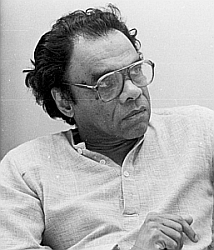Novel
Namesake
The Namesake portrays both the immigrant experience in America, and the complexity of family loyalties that underlies all human experience. Ashoke and Ashima Ganguli, after an arranged marriage in India, emigrate to America where Ashoke achieves his dream of an engineering degree and a tenured position in a New England college. Their son Gogol, named for the Russian writer, rejects both his unique name and his Bengali heritage.
In a scene central to the novel’s theme, Ashoke gives his son a volume of Nikolai Gogol’s short stories for his fourteenth birthday, hoping to explain the book’s significance in his own life. Gogol, a thoroughly Americanized teenager, is indifferent, preoccupied with his favorite Beatles recording. Such quietly revealing moments give the narrative its emotional power. The loneliness of lives lived in exile is most poignantly revealed in the late night family telephone calls from India, always an announcement of illness or death.
Gogol earns his degree in architecture, but happiness in love eludes him. An intense love affair with Maxine draws him into a wealthy American family, revealing the extreme contrasts between American and Indian family values. Gogol’s marriage to Moushumi, who shares his Indian heritage, ends in divorce.
Jhumpa Lahiri’s conclusion achieves a fine balance. Ashima, now a widow, sells the family home and will divide her time between America and Calcutta. Gogol, at thirty-two, discovers in his father’s gift of Gogol’s short stories a temporary reconciliation with his name and the heritage he has rejected.
Critics praise Lahiri’s luminous, graceful style and her keenly observed details of daily life, particularly the mythic significance of food and ethnic customs. The Namesake, her first novel, fulfills the promise of her collection of short stories, The Interpreter of Maladies (1999), that won the Pulitzer Prize in 2000.




Comments
Post a Comment